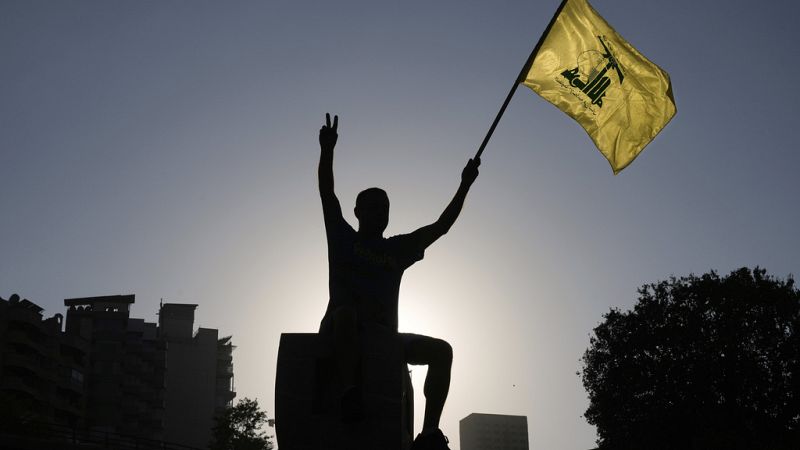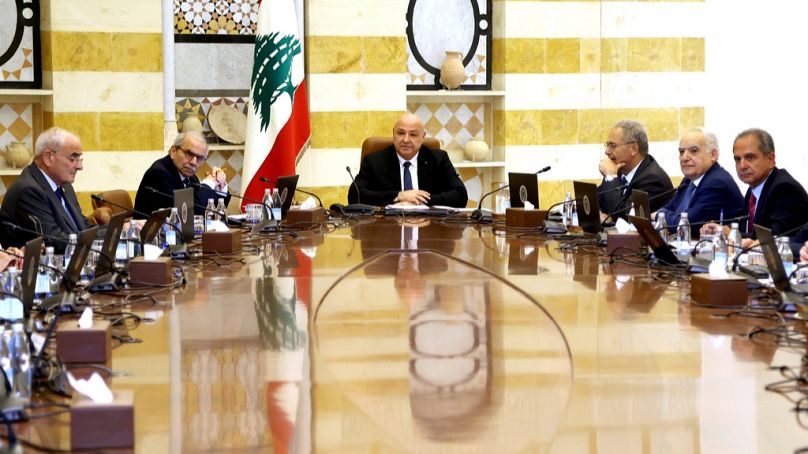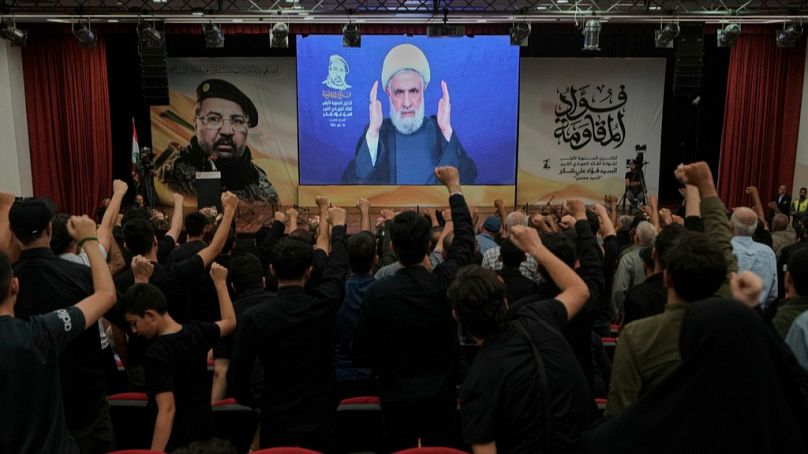Lebanon tells army to prepare plan to disarm Hezbollah by end of the year

Lebanon's government has tasked the army with devising a plan to ensure that only state institutions possess weapons by the end of the year, a move that aims to disarm the Iran-backed militant group Hezbollah.
The announcement by Lebanese Prime Minister Nawaf Salam came after a nearly six-hour cabinet meeting. He said the government asked the army to have the plan prepared by the end of the month for discussion and approval.
Following the meeting, Salam spoke of the "state's duty to monopolise the possession of weapons", Lebanon's state-run National News Agency (NNA) reported.
The decision follows massive pressure from Washington on Beirut to disarm Hezbollah, including a July visit by US envoy Tom Barrack, who called for a more decisive policy.
However, as the cabinet was meeting on Tuesday afternoon, Hezbollah leader Naim Kassem rejected calls for his group to lay down its weapons.
"Any timetable presented for implementation under ... Israeli aggression cannot be agreed to," he said in a televised address.
"The issue has become simply: give us weapons, but no national security. How is that possible? We do not accept it, because we consider ourselves a fundamental component of Lebanon."
Hezbollah has been left severely weakened by a 14-month conflict with Israel that ended in November with a US-brokered ceasefire. Several of the group's leaders died in the hostilities, thousands of its fighters were killed, and much of its weaponry was destroyed.
Hezbollah warns Israel
Last week, Lebanese President Joseph Aoun reiterated calls for Hezbollah to give up its weapons, angering the group's leadership.
Since the ceasefire, Hezbollah has said it will not discuss disarmament until Israel withdraws from the five hills it controls inside Lebanon, and stops near-daily airstrikes that have killed or wounded hundreds of people, most of them members of the militant group.
Israel has accused Hezbollah of trying to rebuild its military capabilities. Israel's army has said the five hills in Lebanon provide vantage points or are located across from communities in northern Israel, where about 60,000 Israelis were displaced by the conflict.
Hezbollah has claimed responsibility for one attack on a disputed area along the border since the ceasefire.
In his speech, Kassem said Hezbollah would retaliate if Israel restarted a wider war against Lebanon.
"Israel's interest is not to widen the aggression because if they expand, the resistance will defend, the army will defend and the people will defend," Kassem said.
"This defence will lead to the fall of missiles inside Israel."
Kassem also said that Hezbollah rejects a government vote over its weapons, emphasising that such a decision should be unanimously backed by all Lebanese.
Hezbollah's weapons are a divisive issue. The group still has significant support among the Shiite Muslim community, but there are calls for disarmament in some quarters.
The Israel-Hezbollah conflict started a day after the 7 October 2023 attack by Hamas that triggered the war in Gaza. Lebanese authorities have said at least 4,000 people were killed in the hostilities, although they have not distinguished combatants from civilians.
Today



